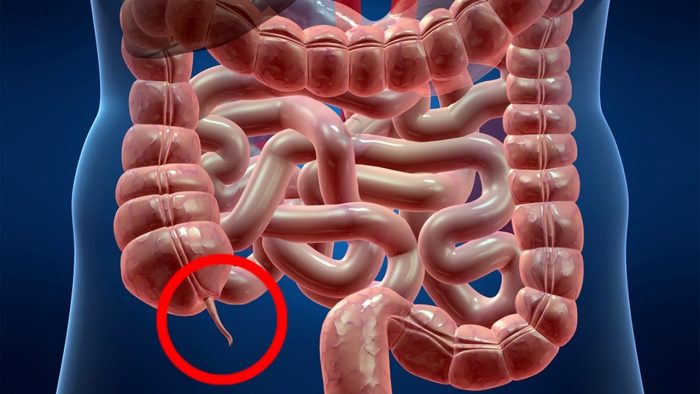Appendicitis
- Details
- Published: 06 September 2019
- Hits: 3654
The appendix is a finger-shaped tube that is attached to the large intestine. Appendicitis is inflammation of the appendix. Without treatment, appendicitis can cause the appendix to tear (rupture). A ruptured appendix can lead to a life-threatening infection. It can also lead to the formation of a painful collection of pus (abscess) in the appendix.

What are the causes?
This condition may be caused by a blockage in the appendix that leads to infection. The blockage can be due to:
- A ball of stool.
- Enlarged lymph glands.
In some cases, the cause may not be known.
What increases the risk?
This condition is more likely to develop in people who are 10–30 years of age.
What are the signs or symptoms?
Symptoms of this condition include:
- Pain around the belly button that moves toward the lower right abdomen. The pain can become more severe as time passes. It gets worse with coughing or sudden movements.
- Tenderness in the lower right abdomen.
- Nausea.
- Vomiting.
- Loss of appetite.
- Fever.
- Constipation.
- Diarrhea.
- Generally not feeling well.
How is this diagnosed?
This condition may be diagnosed with:
- A physical exam.
- Blood tests.
- Urine test.
To confirm the diagnosis, an ultrasound, MRI, or CT scan may be done.
How is this treated?
This condition is usually treated by taking out the appendix (appendectomy). There are two methods for doing an appendectomy:
- Open appendectomy. In this surgery, the appendix is removed through a large cut (incision) that is made in the lower right abdomen. This procedure may be recommended if:
- You have major scarring from a previous surgery.
- You have a bleeding disorder.
- You are pregnant and are near term.
- You have a condition that makes the laparoscopic procedure impossible, such as an advanced infection or a ruptured appendix.
- Laparoscopic appendectomy. In this surgery, the appendix is removed through small incisions. This procedure usually causes less pain and fewer problems than an open appendectomy. It also has a shorter recovery time.
If the appendix has ruptured and an abscess has formed, a drain may be placed into the abscess to remove fluid and antibiotic medicines may be given through an IV tube. The appendix may or may not need to be removed.
